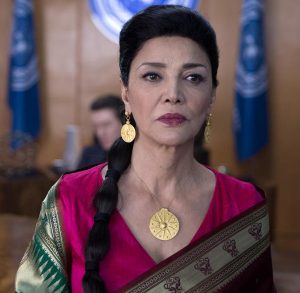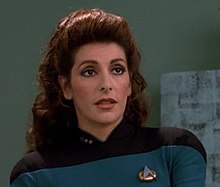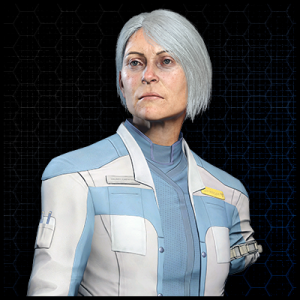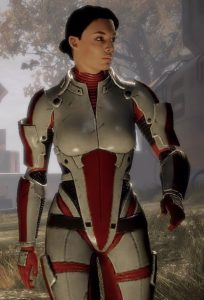In these contemporary times it often feels as though I’m being force-fed feminism. It is, understandably, a product of modern social/economic/technological circumstances coming into conflict with our stubbornness to change, and is, within reason, a required means to achieve true egalitarianism. To this there is little argument. But why then do I find it frequently so off-putting? I am a modern man, a Millennial in fact, with rather liberal views.
To resolve the internal conflict, I decided to meditate heavily on the subject, and I believe that the anxiety is not a result of the goals themselves, but rather the execution. I will explain via corollary, specifically through the means by which one of my generation explores our present culture: TV and video games.
Firstly though, I’ll cite the Bechdel Test, as it’s both appropriate for this topic as well as a very straightforward method by which to analyze the relevance of female characters in media.
In summary, a movie doesn’t represent women in any meaningful way unless [paraphrasing mine]:
- The movie has to have at least two women in it,
- who talk to each other,
- about something other than a man.
I’ll use this as the foundation to my own test (Moorhead Test?), because in response to a sudden desire to pass the Bechdel, women are being cast at an exponential rate, many times inappropriately, with the results often patronizing if not downright jarring and unbelievable. So I will attempt to assist the entertainment industry with their shortcomings. Here’s my test:
A female character isn’t believable unless:
- Her behavior is in line with the authority that the position she occupies would normally require of a man,
- who also is in an age-appropriate position,
- who realistically possesses the skills required for said position,
- and whose dialog is not intentionally condescending to male characters and male viewers.
I will elaborate on these points, then provide a good and bad example for each, to show where we have succeeded and where we have horribly failed (with the assumption that you, the reader, have similar media tastes and are familiar with the referenced characters):
- If a female character doesn’t behave in a manner that the position she occupies would require of a male counterpoint, then the question is: why is she in that position? If we wouldn’t believe a man in that same position would act similarly, then the female casting hints at motives other than including a qualified female candidate.
- If a female character is too young for the position she’s playing, then the casting indicates sexual motives.
- Drawing from the first two criteria, if a female character does not or could not possess the skills normally required for the casted position, then the casting is patronizing.
- Regarding condescending dialog–this appears, like, a lot. I assume it’s there to stroke female viewers’ egos, they way they loved to do in 90s sitcoms. Or, again, it’s just downright patronizing, the way we used to use the term “homemaker” to imply being a stay-at-home wife was just as rewarding as having a career and women didn’t need to pursue the latter.
Hopefully you’re following me and not looking for reasons to be angry. The point is that properly casted female characters don’t generally even raise an eyebrow amongst the intelligentsia, but too often they are indeed miscast for what I’m assuming is simply an attempt to increase female audience size or show how “progressive” the creators are trying to be.
Here’s my examples:
Category: TV
Good

Show: The Expanse
Character: Chrisjen Avasarala
Actor: Shohreh Aghdashloo
Role: UN Deputy Undersecretary, later UN Secretary General
xxxxxxxxxxxxxxxxxxxxxxxxxxxxxxxxxxxxxxxxxxxxxxxxxxxxxxxxxxxxxxxxxxxxxxxxxxxxxxxxxx
Bad

Show: Star Trek: The Next Generation
Character: Diana Troy
Actor: Marina Sirtis
Role: Counselor
xxxxxxxxxxxxxxxxxxxxxxxxxxxxxxxxxxxxxxxxxxxxxxxxxxxxxxxxxxxxxxxxxxxxxxxxxxxxxxxxxx
Failure reason: Acts annoyingly flirtatious and dresses inappropriately for a professional (despite what the above image might indicate, she spent most of the series not in a Starfleet uniform!). Makes several amused comments about the silliness of male honor codes.
Category: Movie
Good
 Movie: Terminator 2: Judgement Day
Movie: Terminator 2: Judgement Day
Character: Sarah Connor
Actor: Linda Hamilton
Role: Mother of John Connor/Terminator Survivor/Cyberdyne Destroyer
xxxxxxxxxxxxxxxxxxxxxxxxxxxxxxxxxxxxxxxxxxxxxxxxxxxxxxxxxxxxxxxxxxxxxxxxxxxxxxxxxx
Bad

Move: X-Men
Character: Storm
Actor: Halle Berry
Role: X-man/teacher
xxxxxxxxxxxxxxxxxxxxxxxxxxxxxxxxxxxxxxxxxxxxxxxxxxxxxxxxxxxxxxxxxxxxxxxxxxxxxxxxxx
Failure reason: Acts juvenile with her short temper, and what is she teaching at that school exactly? Why did Xavier leave her in charge? Also: bad delivery of poorly-written dialog.
Category: Video Game
Good

Game: Halo Series
Character: Dr. Halsey
Actor: Jennifer Taylor
Role: Forerunner Tech Scientist, ONI (creator of Cortana and SPARTAN program)
xxxxxxxxxxxxxxxxxxxxxxxxxxxxxxxxxxxxxxxxxxxxxxxxxxxxxxxxxxxxxxxxxxxxxxxxxxxxxxxxxx
Bad
 Game: Mass Effect
Game: Mass Effect
Character: Ashley Williams
Actor: Kimberly Brooks
Role: Gunnery Chief
xxxxxxxxxxxxxxxxxxxxxxxxxxxxxxxxxxxxxxxxxxxxxxxxxxxxxxxxxxxxxxxxxxxxxxxxxxxxxxxxxx
Failure reason: Lengthy banal backstory with no value, a clear insert for a love interest, tells stories of her sister’s bad experiences with men and her beating them up. Alien racist, but no clear interest as to why.
I ask you then, oh content creators, can we not please consistently create believable female characters? Ones that are professionals in their fields, and not just walking curves/love interests/man haters? Give us a reason to believe their existence is justified in the roles they’ve been cast, and then work on their personalities and backstories?
Perhaps your problem is that you lack women on your writing staff? Maybe hire some, but make sure they pass the Moorhead Test first.
–Simon




